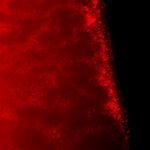Link to Pubmed [PMID] – 27472650
J. Cell. Biochem. 2017 Mar;118(3):478-486
The presented results show for the first time that the neurogenic transdifferentiation of hUC-MSCs considerably changes the elements of purinergic signaling profile. Although, it has been demonstrated in the literature that extracellular nucleotides and nucleosides determine the fate of mesenchymal and neural stem cells, there is lack of comprehensive studies on the activity of ecto-enzymes metabolizing nucleotides on the surface of neurogenically induced cells. Our study shows that human UC-MSCs sense the microenvironment and adjust their response to the environmental signals for example, adenine nucleotides and nucleosides. Nucleotides, and not adenosine, signaling alters the biological potential of MSCs-decreases their proliferation rate, increases the neurogenic transdifferentiation efficiency expressed as the number of positively labeled NCAMand A2B5cells and simultaneously increases the ecto-nucleotidases activity on neural- and glial-committed precursors. Purines implication in the proliferative and neurogenic potential of hUC-MSCs is of strong importance for the in vitro propagation of hUC-MSCs and for their successive therapeutic applications. J. Cell. Biochem. 118: 478-486, 2017. © 2016 Wiley Periodicals, Inc.

